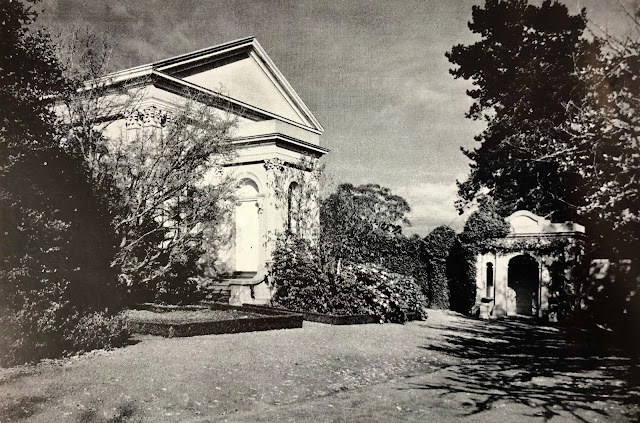No. 620 - Quoiba Methodist Church
Quoiba is a southern suburb of Devonport situated on the western bank of the Mersey River. The general area was previously called Spreyton Station before Quoiba was adopted. Quoiba was in fact a railway siding a short distance from the railway station. In the 1940s there was move to change the name to South Devonport but this was rejected by residents. Quoiba is now largely an industrial area and is virtually indistinguishable from neighbouring Spreyton.
The former Quoiba Methodist church no longer exists and little information about it has survived. The church was originally a hall alongside the Methodist church at Melrose. It was moved and reconstructed on a site at Quoiba by Mr W.J. Brown. Later two rooms were added at the back of the church.
The Quoiba Methodist church was officially opened on 1 June 1952 by Reverend E.L. Vercoe, superintendent minister at Devonport. A Sunday school was established in the same year.
The original trustees of the church were W. Richards, L. Baldock, O. Langham, F. Jones. A. Byard and S.R. Bishop.
The church closed in the 1980’s and the fate of the building is not known.
Additional information and sources about this church are most welcome as all articles are updated. I can be contacted through this page or my Facebook page "Churches of Tasmania" which is linked here: Churches of Tasmania.
The former Quoiba Methodist church no longer exists and little information about it has survived. The church was originally a hall alongside the Methodist church at Melrose. It was moved and reconstructed on a site at Quoiba by Mr W.J. Brown. Later two rooms were added at the back of the church.
The Quoiba Methodist church was officially opened on 1 June 1952 by Reverend E.L. Vercoe, superintendent minister at Devonport. A Sunday school was established in the same year.
The original trustees of the church were W. Richards, L. Baldock, O. Langham, F. Jones. A. Byard and S.R. Bishop.
The church closed in the 1980’s and the fate of the building is not known.
Additional information and sources about this church are most welcome as all articles are updated. I can be contacted through this page or my Facebook page "Churches of Tasmania" which is linked here: Churches of Tasmania.
Sources:
Examiner, Monday 2 September 1940, page 4
Advocate, Tuesday 3 June 1952, page 6
Stansall, M. E. J and Methodist Church of Australasia Tasmanian Methodism, 1820-1975 : compiled at the time of last Meeting of Methodism prior to union. Methodist Church of Australasia, Launceston, Tas, 1975.
Devonport Methodist Circuit, Tasmania, 1957: a call to stewardship.




Comments
Post a Comment